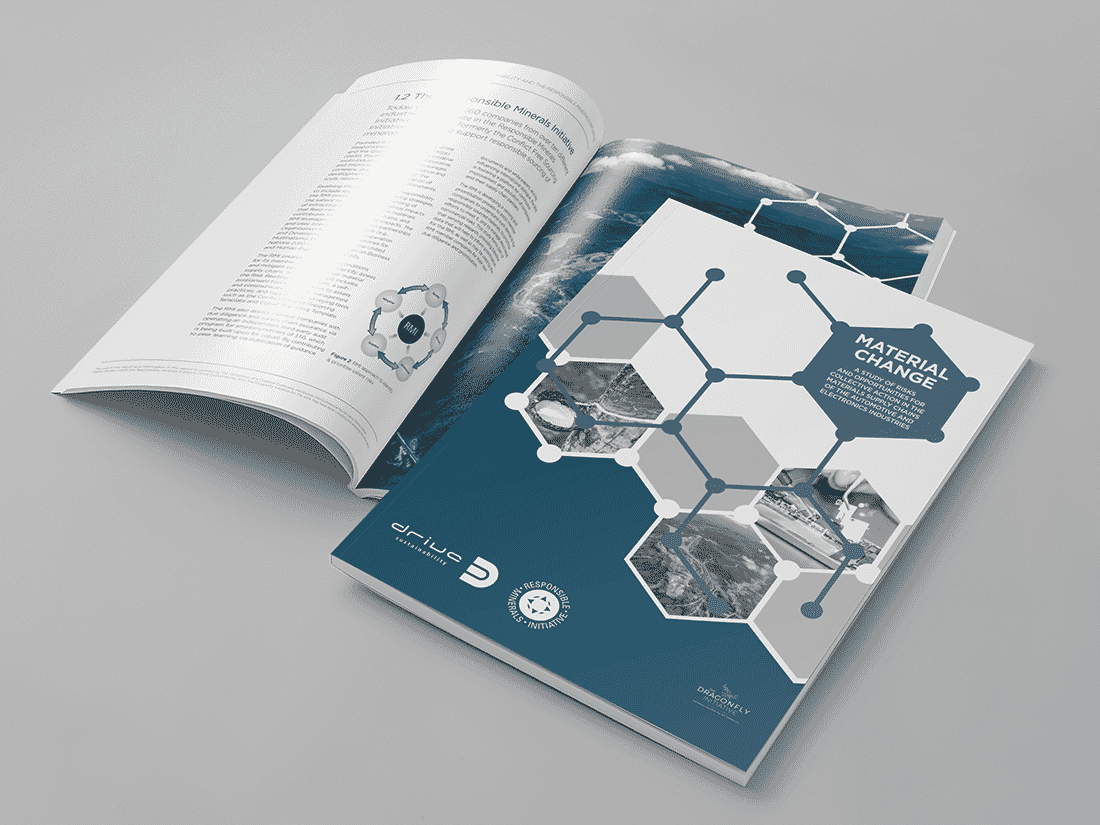
Assessing the materials used in automotive and electronics supply chains
Material Change – initially conducted in 2018 and reviewed in 2023 – was a collaborative effort between Drive Sustainability, Responsible Minerals Initiative, and TDi Sustainability to assess 37 materials used in automotive and electronics supply chains. The study aimed to enable industry-wide comparisons of the materials’ ESG issues and their significance in the manufacturing of automotive and electronic products.
As part of the study, we also evaluated over 40 industry supply chain and international development initiatives in upstream mining and rural communities, building a strategy for engagement in these initiatives by the participating companies and industry associations. During this process, we engaged with the civil society organisations to evaluate their programmes and to help them present their projects to the industry groups.
In addition to writing, editing, producing and branding this report, TDI Sustainability now maintains a repository of the nearly one thousand references that were used to build the profiles of the materials featured. The analytical and impact measurement methodologies that we developed for this project have been widely adopted by other studies and forums.
The Material Change methodology and report consisted of:
1. Criteria development and presentation of results
Heat Maps:
Provide an overview of all 37 materials studied and highlight hotspots of importance and potential ESG risks.
Illustrative Bar Charts:
Display materials by industry consumption and their association with environmental, social, and governance issues.
Material Profiles:
Summarise risk and impact ratings for each material and associated indicators with the material’s top producer countries.